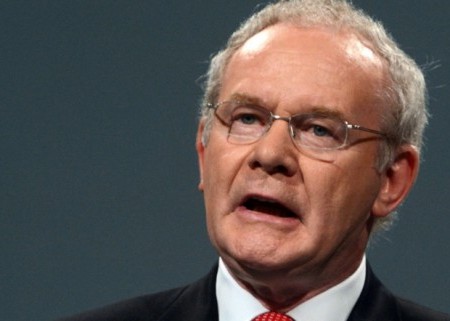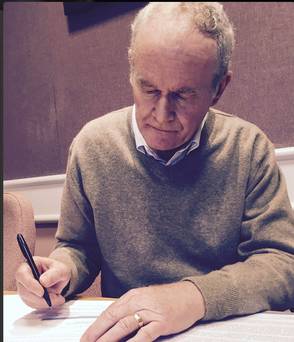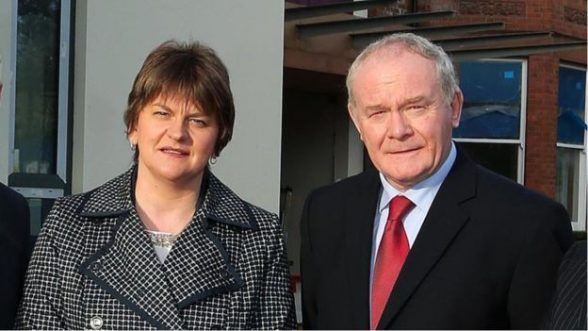
Martin McGuinness dies aged 66
FORMER Deputy First Minister and one of Sinn Féin’s chief negotiators, Martin McGuinness, has died. He was aged 66.
The former Foyle MLA had been admitted to Altnagelvin Hospital a few weeks ago.
His last tweet on Twitter was on March 1 urging the public to come out and vote Sinn Fein.
It is another sad day for Derry City FC following the death of captain Ryan McBride on Sunday.
Fans say Mr McGuinness never missed a match over the years. His son-in-law Sean Hargan played as a defender for the Candy Stripes and later was first team coach at the club.
The former IRA leader turned peacemaker worked at the heart of the power-sharing government following the 1998 Good Friday Agreement.
He became deputy first minister in 2007, standing alongside DUP leaders Ian Paisley, Peter Robinson and Arlene Foster.
Sinn Féin President Gerry Adams said: “Throughout his life Martin showed great determination, dignity and humility and it was no different during his short illness.
“He was a passionate republican who worked tirelessly for peace and reconciliation and for the re-unification of his country. But above all he loved his family and the people of Derry and he was immensely proud of both.”
Former First Minister Arlene Foster Arlene Foster expressed her “sincere condolences” at his death.
“Today’s news will come as a shock to many people,” she said.
“First and foremost, Martin McGuinness was a much loved husband, father and grandfather. My thoughts and prayers are with his wife and the family circle at this very painful time of grief and loss.”
Colin Parry, whose 12-year-old son, Tim, died in an IRA bomb in Warrington in 1993, said although he did not forgive the IRA or Martin McGuinness, he found him a man who was “sincere in his desire for peace”.

Martin McGuinness resigning as deputy first minister in January this year
Martin McGuinness grew up in Derry’s Bogside, radicalised, he said, by discrimination and murder on the streets of his city.
In 1972, at the age of 21, he was second-in-command of the IRA in Derry at the time of Bloody Sunday, when 14 civil rights protesters were killed in the city by soldiers.
He had a leading role in the IRA during a time when the paramilitary organisation was bombing his home city.
He was convicted by the Republic of Ireland’s Special Criminal Court after being arrested near a car containing explosives and ammunition. He served two prison sentences – he was also convicted of IRA membership.
But his leadership potential was spotted early and he was just 22 when he and Gerry Adams were flown to London for secret talks with the British government: MI5 considered him serious officer material with strategic vision.
He claimed he made the transition to politics when he left the IRA in 1974 but security experts believe he was still a leader during some of the organisation’s most notorious attacks in the mid 1980s.
At one point he was the IRA’s Chief of Staff and also sat on the IRA’s ruling seven man Army Council.
The shift to politics came slowly. Martin McGuinness was chief negotiator in the blossoming peace process and took on the post of education minister.
By 2007, he was Northern Ireland’s deputy first minister standing alongside First Minister Ian Paisley. The two forged an unlikely alliance – but they were working together for the same goal.
He worked along DUP first minister Peter Robinson and, until January, was in office with Arlene Foster.
Among the seismic moments in his time in government was the famous handshake with the Queen and a toast to her at Windsor Castle.

Martin McGuinness fell out with Arlene Foster over her refusal to step aside over ‘cash-for-ash’ scandal
In recent years, he said: “My war is over. My job as a political leader is to prevent that war and I feel very passionate about it.”
Tags:




